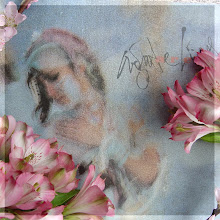
星期三, 2月 19, 2014
星期二, 2月 18, 2014
節 候 看 應 晚 Pavel H A A S (1899- 1944) 4 Songs on Chinese Poetry. baritone: Christian Gerhaher. piano: Gerold Huber

韋 應 物 ( Wei Yingwu, 737- 792) http://en.wikipedia.org/wiki/Wei_Yingwu
◎ 聞 雁 Hear the Wild Geese
故園渺何處?歸思方悠哉。 淮南秋雨夜,高齋聞雁來。
王 维 ( Wang Wei, 701- 761) http://en.wikipedia.org/wiki/Wang_Wei_(8th_century_poet)
◎ 竹 里 館 In the Bamboo Grove
獨坐幽篁裏,彈琴複長嘯。深林人不知,明月來相照。
張九齡 ( Zhang Jiuling, 673-740) http://en.wikipedia.org/wiki/Zhang_Jiuling
◎ 望月懷遠 The Moon is Far From Home
海上生明月,天涯共此時。 情人怨遙夜,竟夕起相思。
滅燭憐光滿,披衣覺露滋。 不堪盈手贈,還寢夢佳期。
滅燭憐光滿,披衣覺露滋。 不堪盈手贈,還寢夢佳期。
韓翃 ( Han I, Tang Dynasty)
http://zh.wikipedia.org/wiki/%E9%9F%93%E7%BF%83
◎ 酬程延秋夜即事見贈 A Reply to Cheng Yan's poem "On An Autumn's Night"
長簟迎風早,空城澹月華。 星河秋一雁,砧杵夜千家。
節候看應晚,心期臥已賒。 向來吟秀句,不覺已鳴鴉。
節候看應晚,心期臥已賒。 向來吟秀句,不覺已鳴鴉。
Dvořák's daughter Otilie married his student, the composer Josef Suk.
Janáček established a school of composition in Brno. Among his notable pupils were Jan Kunc, Václav Kaprál, Vilém Petrželka, Jaroslav Kvapil, Osvald Chlubna, Břetislav Bakala, and Pavel Haas (21 Jun.1899- 17 Oct.1944) . Most of his students neither imitated nor developed Janáček's style, which left him no direct stylistic descendants.

星期一, 2月 17, 2014
T h e H i g h e s t H i g h 高 處 / 夢, Feb. 2014 . ( K o e c h l i n: Chorals pour des fêtes populaires OP.1 5 3 )

The Highest High
不是第一次,做這樣的夢了。 這樣的夢,當我人在夢裡,夢境的場景會換個樣子,同時間,我人沒有改變。 這往往讓夢裡的我,思索我人怎麼出現在這,然後想辦法脫困。
例如這幾天的夢: 我原本好好的,像高中時候一樣,在頂樓透氣,找水泥邊階一個人坐著。 突然之間,不得了,從我坐的地方往下望,怎麼坐在高樓大廈邊緣的位置,這高度讓我在這坐得心驚肉顫。
我能感覺到在夢裡,慌張的情緒,夢裡我只能告訴自己,小心翼翼的挪移坐姿,慢慢把位置往裡移動。
或許,夢對我提了一個問題: 為什麼同樣是坐定,當人坐在安全的台階,與高處的邊緣,雖然處境是有改變,但對於心境,卻產生不相同的影響。 而我的夢的經驗,往往是醒後,回想: 這不是日常生活裡,曾經發生過的事情,才說: 那是夢。 雖然那經驗的感覺,就和真的經歷過這回事一樣。
最近閱讀到一位作曲家。 法國作曲家 Charles K o e c h l i n (1867-1950) 這麼說: 藝術家需要一座象牙塔,不是用來逃避現實世界,而是在這,他可以觀察世界,並做自己。 這座塔對藝術家來說,像普照全世界的燈塔。
" The artist needs an ivory tower, not as an escape from the world, but as a place where he can view the world and be himself. This tower is for the artist like a lighthouse shining out across the world. " (wiki)
2 jun 2ol5
訂閱:
文章 (Atom)


